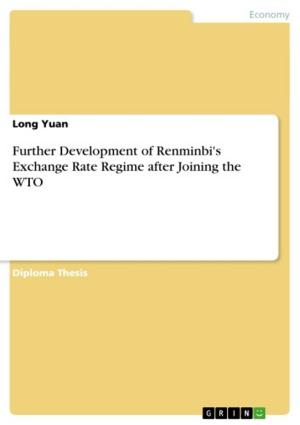The Latino Paradox - does it really exist?
does it really exist?
Nonfiction, Health & Well Being, Medical, Reference, Public Health| Author: | Michael Unrath | ISBN: | 9783640676040 |
| Publisher: | GRIN Publishing | Publication: | August 4, 2010 |
| Imprint: | GRIN Publishing | Language: | English |
| Author: | Michael Unrath |
| ISBN: | 9783640676040 |
| Publisher: | GRIN Publishing |
| Publication: | August 4, 2010 |
| Imprint: | GRIN Publishing |
| Language: | English |
Seminar paper from the year 2009 in the subject Medicine - Public Health, grade: 1,3, Johannes Gutenberg University Mainz (Institut für Medizinische Biometrie, Epidemiologie und Informatik), course: Social Epidemiology, language: English, abstract: The Latino Paradox is a phenomenon commonly referring to the finding that Americans of Hispanic origin do surprisingly well in respect of various health indicators, despite their unfavorable socioeconomic profile consisting of low income, low levels of education and less favored living environments. Such kinds of findings were first reported in the 1950s and 1960s and focused on mental health among Mexican Americans (Jaco, 1973 cited in Markides & Coreil, 1986; Karno & Edgerton, 1969 cited in Markides & Coreil, 1986). Also in the 1960s, first studies revealed surprisingly favorable infant mortality rates for Americans with Spanish surnames (Teller & Clyburn, 1974 cited in Palloni & Morenoff, 2001). Generally, Hispanics seemed to be clearly better off than non-Hispanic blacks, although the two groups share a lot of similar socioeconomic features. The present work critically reviews the existing literature on this phenomenen and seeks to answer the question if those differences in health indicators are true differences, or rather due to alternative explanations.
Seminar paper from the year 2009 in the subject Medicine - Public Health, grade: 1,3, Johannes Gutenberg University Mainz (Institut für Medizinische Biometrie, Epidemiologie und Informatik), course: Social Epidemiology, language: English, abstract: The Latino Paradox is a phenomenon commonly referring to the finding that Americans of Hispanic origin do surprisingly well in respect of various health indicators, despite their unfavorable socioeconomic profile consisting of low income, low levels of education and less favored living environments. Such kinds of findings were first reported in the 1950s and 1960s and focused on mental health among Mexican Americans (Jaco, 1973 cited in Markides & Coreil, 1986; Karno & Edgerton, 1969 cited in Markides & Coreil, 1986). Also in the 1960s, first studies revealed surprisingly favorable infant mortality rates for Americans with Spanish surnames (Teller & Clyburn, 1974 cited in Palloni & Morenoff, 2001). Generally, Hispanics seemed to be clearly better off than non-Hispanic blacks, although the two groups share a lot of similar socioeconomic features. The present work critically reviews the existing literature on this phenomenen and seeks to answer the question if those differences in health indicators are true differences, or rather due to alternative explanations.















